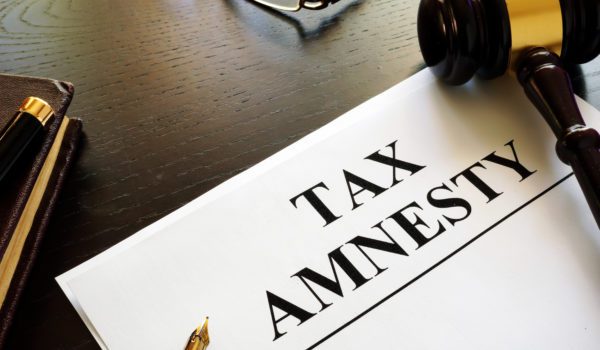This article was originally published in Bloomberg Law Daily Tax Report.
Many taxpayers, tax practitioners, and even some state lawmakers are wondering what happened to the Kentucky tax amnesty program that was legislated a year ago.
It’s now September, and the Kentucky Department of Revenue has made no public announcement about restarting the amnesty program. Other state officials confirmed the amnesty program has been indefinitely shelved, prompting a blame game between GOP-controlled Legislature and Democratic Gov. Andy Beshear. This lack of action raises serious questions.
The last two Kentucky tax amnesties, in 2002 and 2012, created significant revenue for the commonwealth. Lawmakers proposed another amnesty program in 2022 that, like the prior two, allowed taxpayers to clean up any outstanding Kentucky tax matters with full waiver of fees and penalties and a 50% reduction in interest.
The proposed amnesty was to be from Oct. 1 to Nov. 29, 2022, and apply to all state-level taxes (excluding real property tax and local portions of personal property tax) from Oct. 1 to Dec. 1, 2021. Nonfilers, taxpayers who underreported, and even taxpayers under audit or who received a bill, notice, or demand of payment could apply for amnesty.
The measure was ultimately absorbed into H.B. 8—a comprehensive tax reform bill that became law on April 13, 2022. H.B. 8 contained a directive for the state to run the latest version of the tax amnesty program via a third-party contract. Four months later, KDOR sent a request for proposal for an outside provider to implement and manage the program.
A review of the RFP suggests that it was designed to fail. It indicated that no funding existed in the executive branch budget bill to run the program, so no contract would be issued to any providers. Essentially, KDOR dismissed the General Assembly and its H.B. 8 directive.
H.B. 8 had mandated that KDOR was statutorily obligated to run a tax amnesty program itself in 2023 if it failed to award a contract for the work. In other words, KDOR itself was to absorb the funding costs to run the amnesty program from Oct. 1 to Nov. 29.
In a 2023 budget writing, the administration reiterated that H.B. 8 authorized a tax amnesty but failed to provide any funding to implement one. “Subject to future appropriations, the Amnesty Program may be in place during the biennium,” the administration wrote. This is essentially a punt.
Discussions with General Assembly leaders in early 2022 predicted the likely revenue from the tax amnesty program to be somewhere between $100 million to $150 million. With the General Assembly’s continued movement toward lowering individual income tax rates, and the legislative mechanism used to determine whether there’s enough budget surplus for future rate cuts, this multimillion-dollar shortfall may prevent the next round of individual income tax cuts for residents and businesses.
The state tax code requires an additional penalty for taxpayers that owe taxes from the amnesty periods but didn’t come forward—what’s the impact on these penalties if amnesty never happened? And more to the point, how does an agency simply ignore the clear statutory directive on tax amnesty? Although KDOR in theory could still pull off an amnesty program in 2023, those chances are slim given the lack of action so far.
Taxpayers that may have been planning to use this program or that could be affected by tax amnesty penalties will want to reevaluate. Further, Kentuckians should be considering what KDOR’s failure to adhere to statutory requirements says about other tax legislation in the commonwealth.
Visit our Tax Law Defined® Blog for more insight into the latest developments in federal, state and local tax planning and tax administration.

